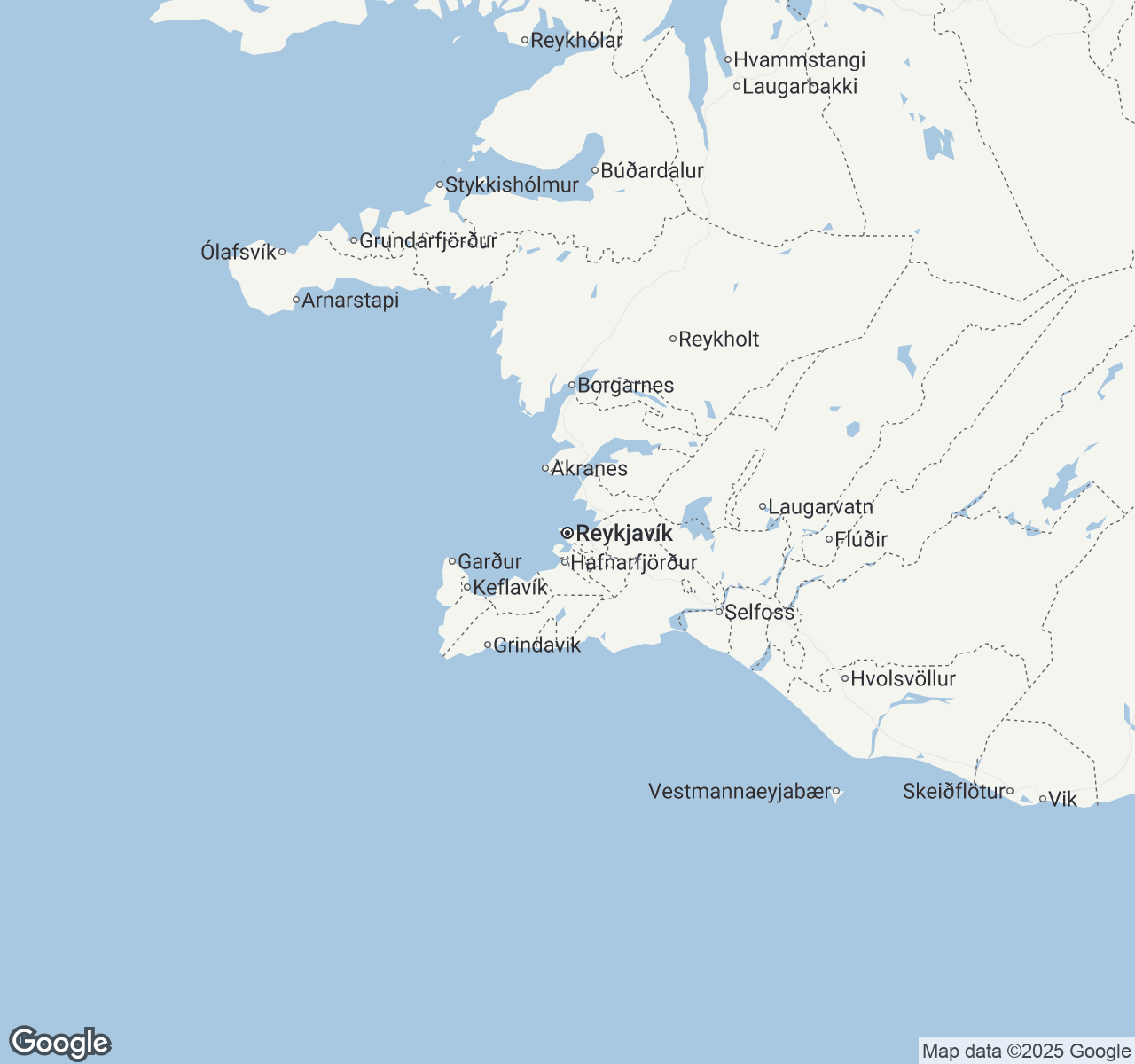
Things to Do in Reykjavik
Discover the best of Reykjavik
Plan Your Trip
Essential guides for timing and budgeting
Top Things to Do in Reykjavik
Discover the best activities and experiences. Book now with our trusted partners and enjoy hassle-free adventures.
Explore Reykjavik
Hallgrímskirkja
City
Harpa Concert Hall
City
Laugavegur Shopping Street
City
National Museum Of Iceland
City
Old Town Reykjavik
City
Perlan
City
Reykjavik Art Museum
City
Reykjavik Botanic Garden
City
Reykjavik Botanical Garden
City
Reykjavik Maritime Museum
City
Reykjavik Old Harbour
City
Saga Museum
City
Sun Voyager Sculpture
City
Tjörnin Pond
City
Whales Of Iceland Exhibition
City
Árbær Open Air Museum
City
Your Guide to Reykjavik
About Reykjavik
Reykjavik emerges from the North Atlantic like a colorful dream painted against volcanic mountains, where Nordic minimalism meets raw Arctic beauty. This compact capital pulses with creative energy, its rainbow-hued rooftops sheltering vibrant cafés, cutting-edge galleries, and cozy bookshops that stay open late into the endless summer nights. Steam rises mysteriously from geothermal pools scattered throughout the city, while the aurora borealis dances overhead in winter's embrace. Here, ancient Viking sagas blend seamlessly with contemporary innovation—where else can you soak in naturally heated outdoor pools while snow falls, then discover groundbreaking music in intimate venues that launched Björk and Sigur Rós? Reykjavik's soul lies in its contrasts: the profound silence of its snowy winters broken by the joyful chaos of weekend nights, the stark beauty of its lunar landscapes softened by the warmth of its people, and the way this small city manages to feel both timelessly ancient and refreshingly modern.
Travel Tips
Transportation: Purchase the Reykjavik City Card for unlimited bus rides plus museum entries. Downtown is walkable, but buses run efficiently 6:30am-midnight (limited weekend service). Rent bikes from multiple city stations—dedicated bike lanes make cycling safe and scenic.
Money: Iceland is nearly cashless—bring contactless cards and enable international transactions beforehand. Tipping isn't expected but rounding up 10% is appreciated. ATMs charge high fees; use cards everywhere including public transportation and small vendors.
Cultural Respect: Remove shoes when entering homes (often required in some restaurants). Icelanders value personal space and speak softly in public. Don't expect small talk from strangers—directness isn't rudeness but cultural norm. Respect nature areas by staying on marked paths.
Food Safety: Tap water is pristine—bring a reusable bottle. Try fermented shark (hákarl) at traditional restaurants, not tourist traps. Book dinner reservations 2-3 days ahead at popular spots. Sample Icelandic hot dogs from Bæjarins Beztu Pylsur—a local institution since 1937.
When to Visit
Summer (June-August) offers 19-22 hours of daylight with temperatures averaging 50-59°F (10-15°C) and minimal rainfall (1-2 inches monthly). This peak season sees 40-60% higher accommodation costs but provides optimal conditions for highland tours and midnight sun experiences. The Reykjavik Arts Festival occurs in late May, while Culture Night transforms the city every August. Shoulder seasons (April-May, September-October) feature moderate temperatures around 39-50°F (4-10°C) with occasional northern lights visibility after mid-September. Accommodation prices drop 20-30%, though weather remains unpredictable with 2-4 inches monthly rainfall. Winter (November-March) brings temperatures of 28-39°F (-2-4°C) with 4-19 hours of daylight, perfect for northern lights viewing and ice caves. Hotel rates plummet 50-70% during this off-peak period. The Dark Music Days festival enlivens February, while New Year's Eve features spectacular citywide fireworks. Spring visitors enjoy lupine wildflowers and puffin arrivals, while autumn offers dramatic storms and fewer crowds. Budget travelers should target November-February; northern lights enthusiasts should visit September-March with clear, dark skies; summer adventurers will find July-August ideal for Westfjords and highland access.

Reykjavik location map